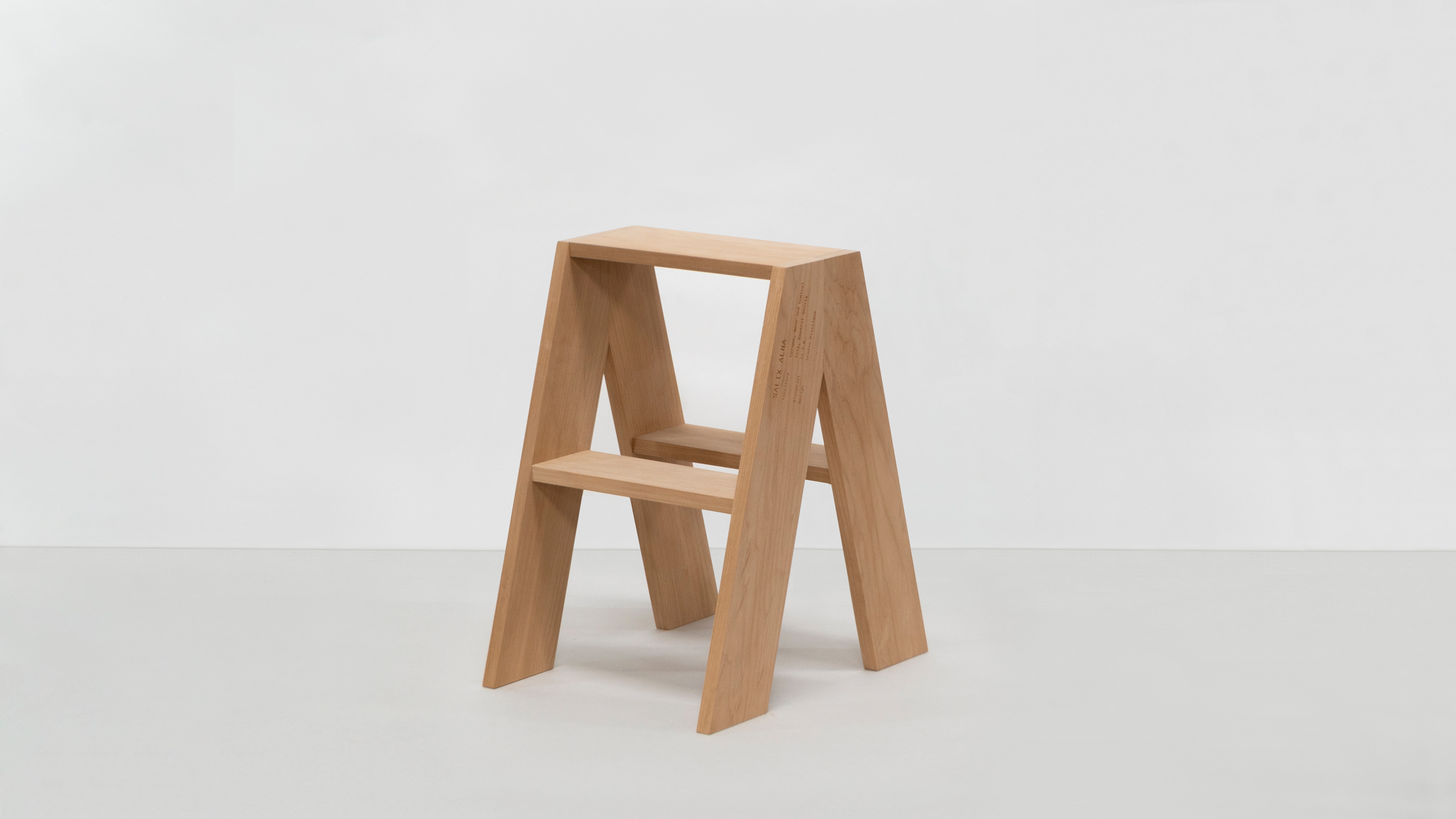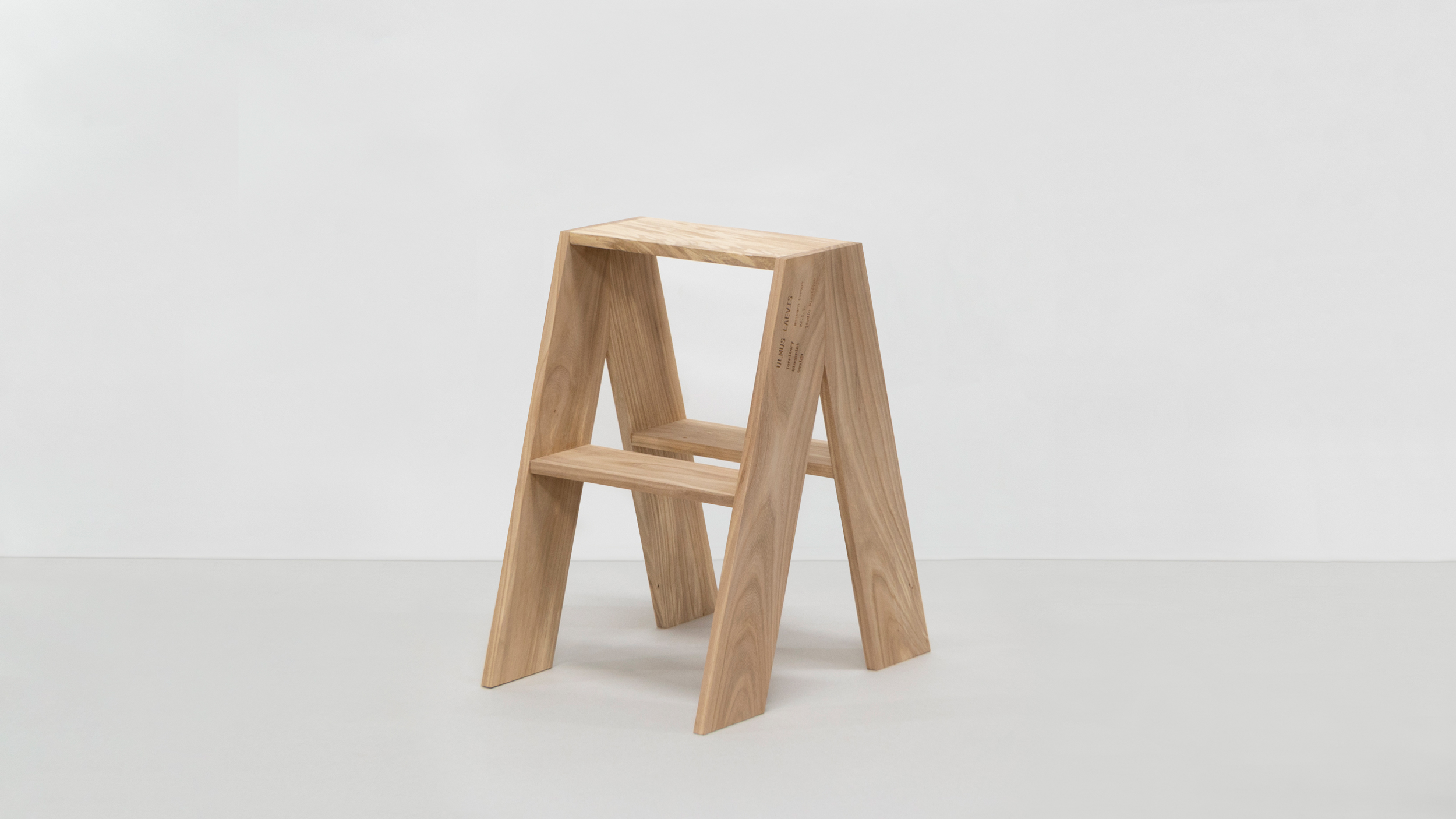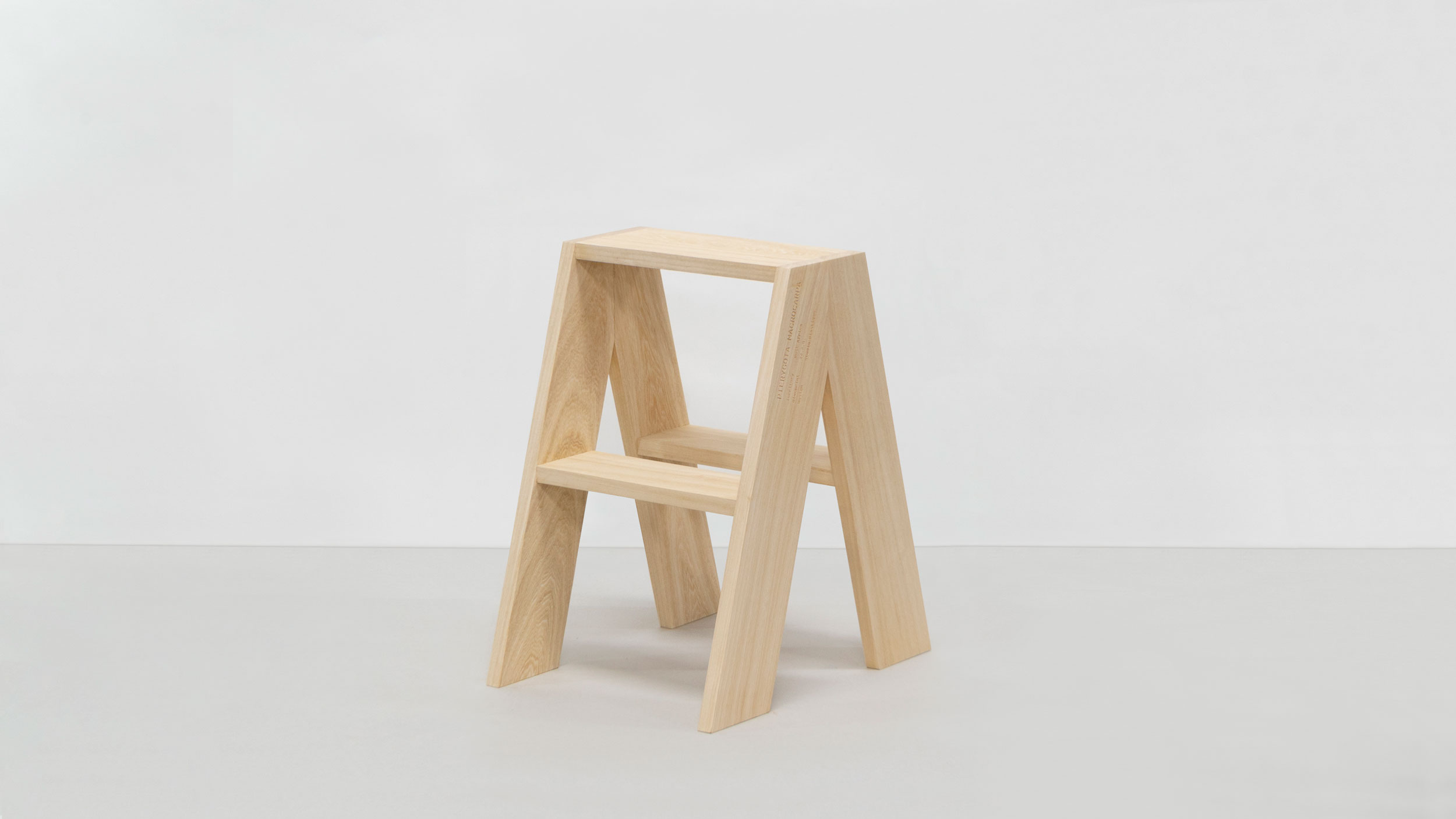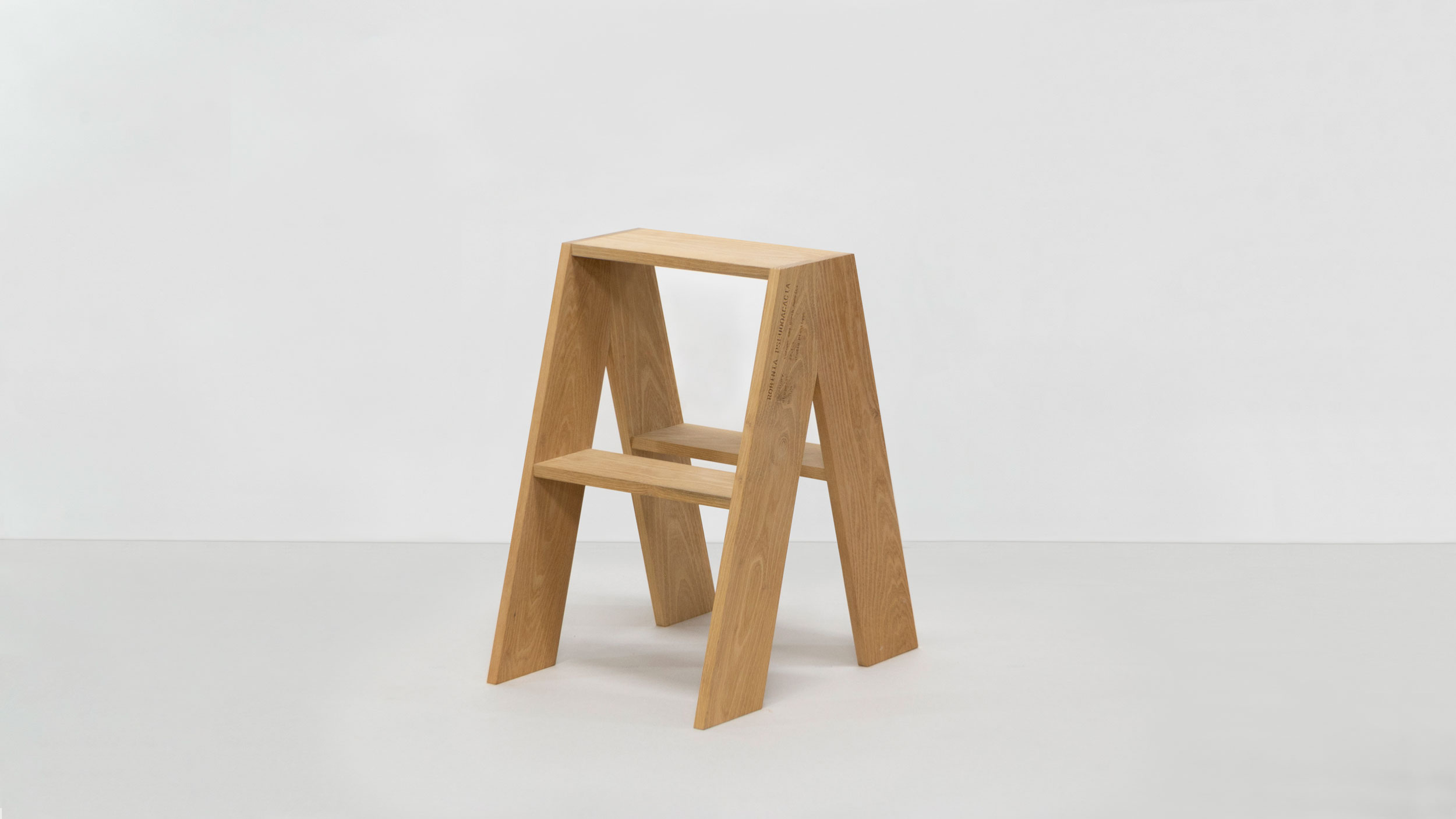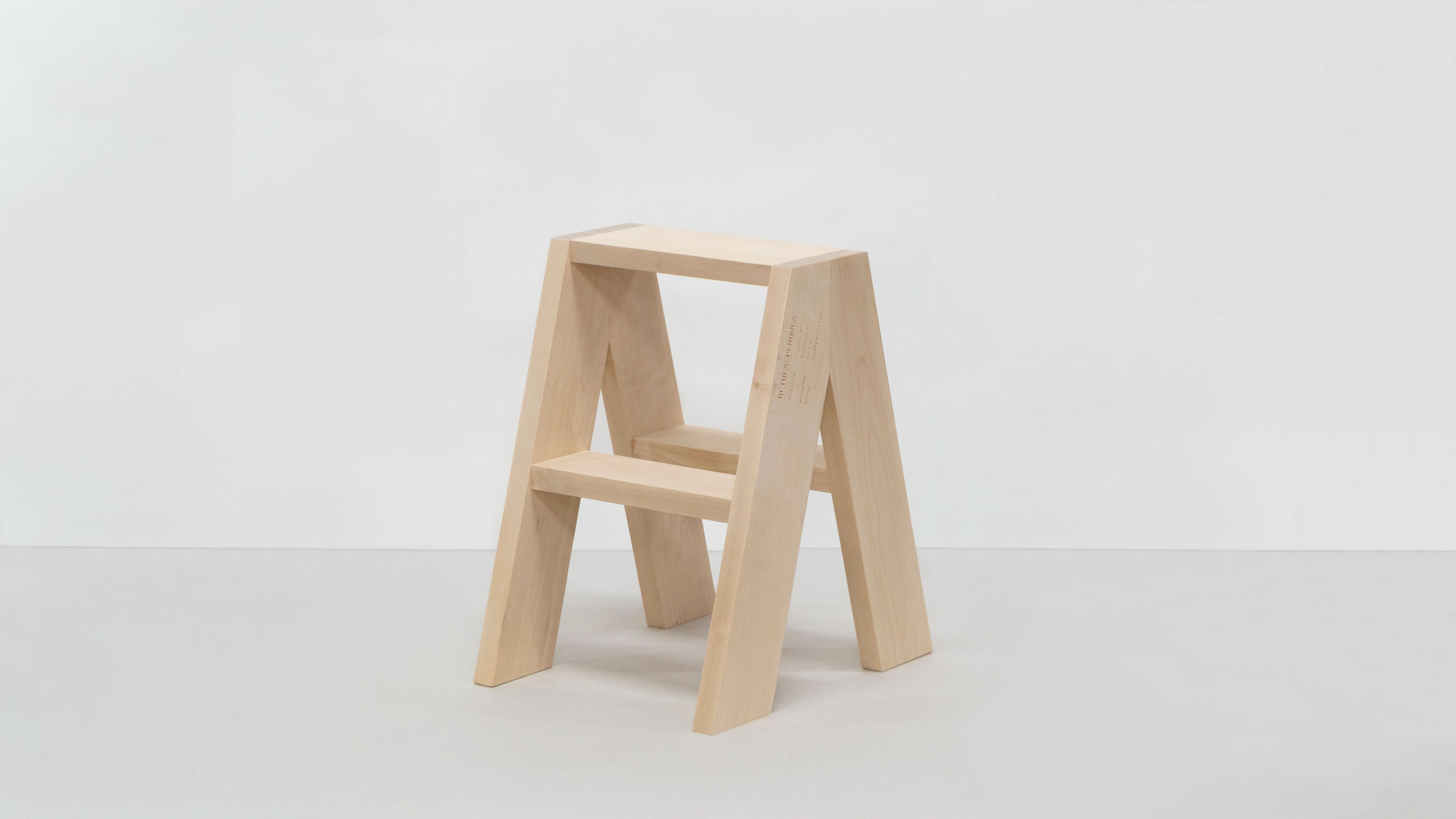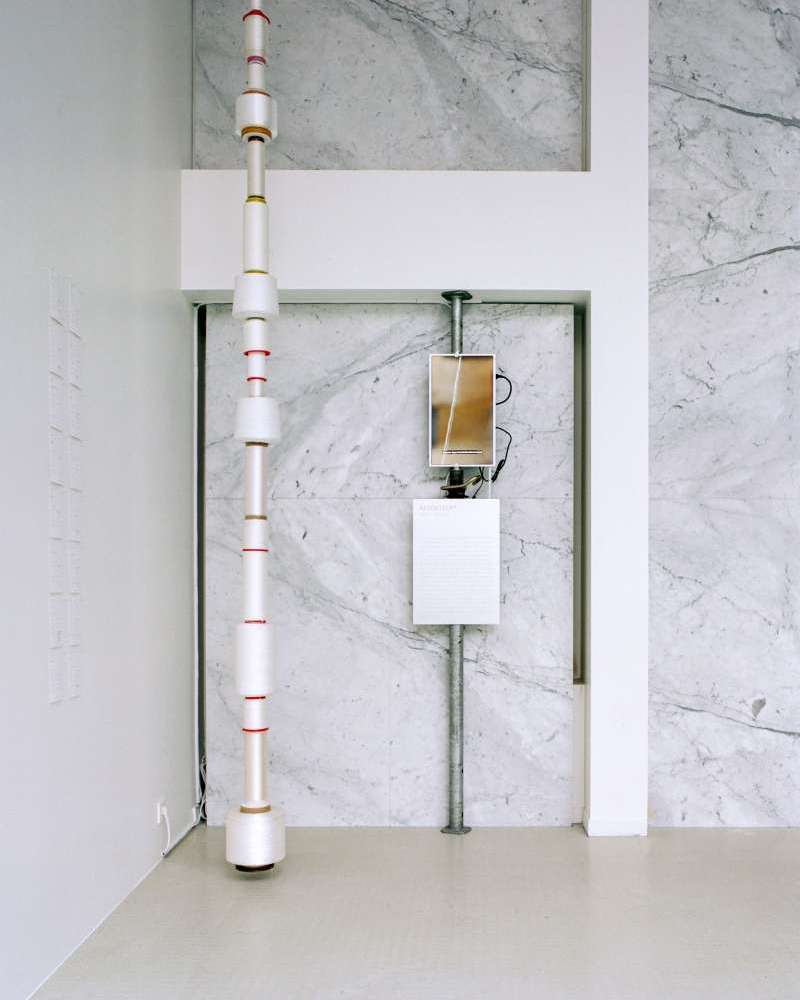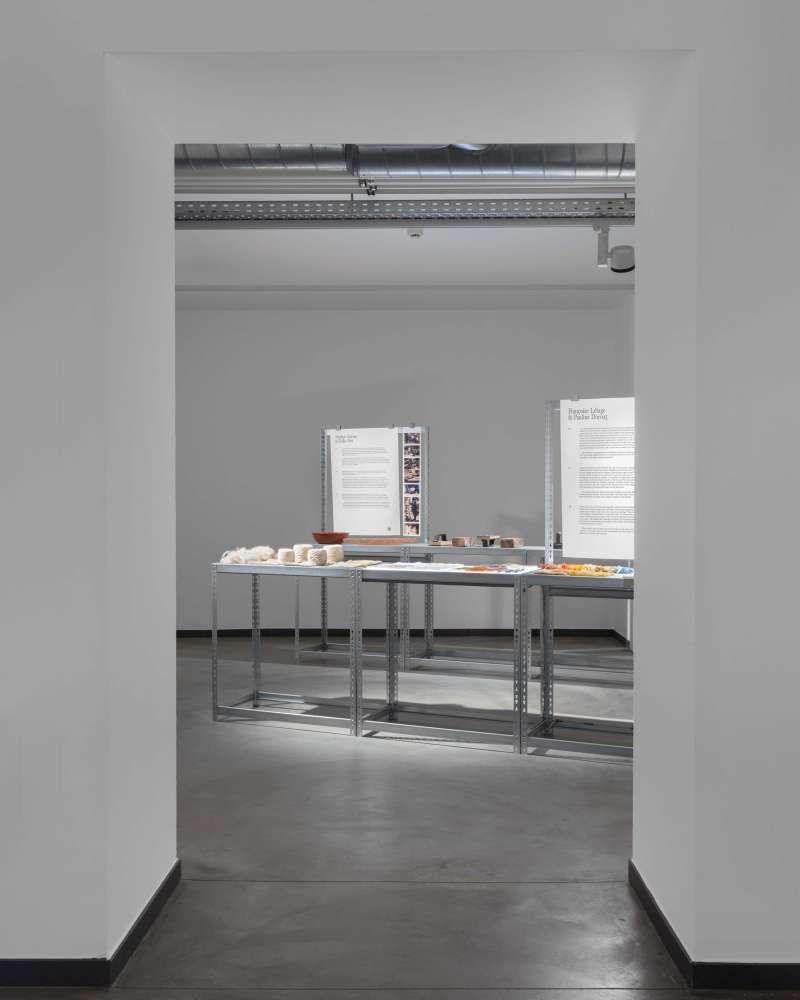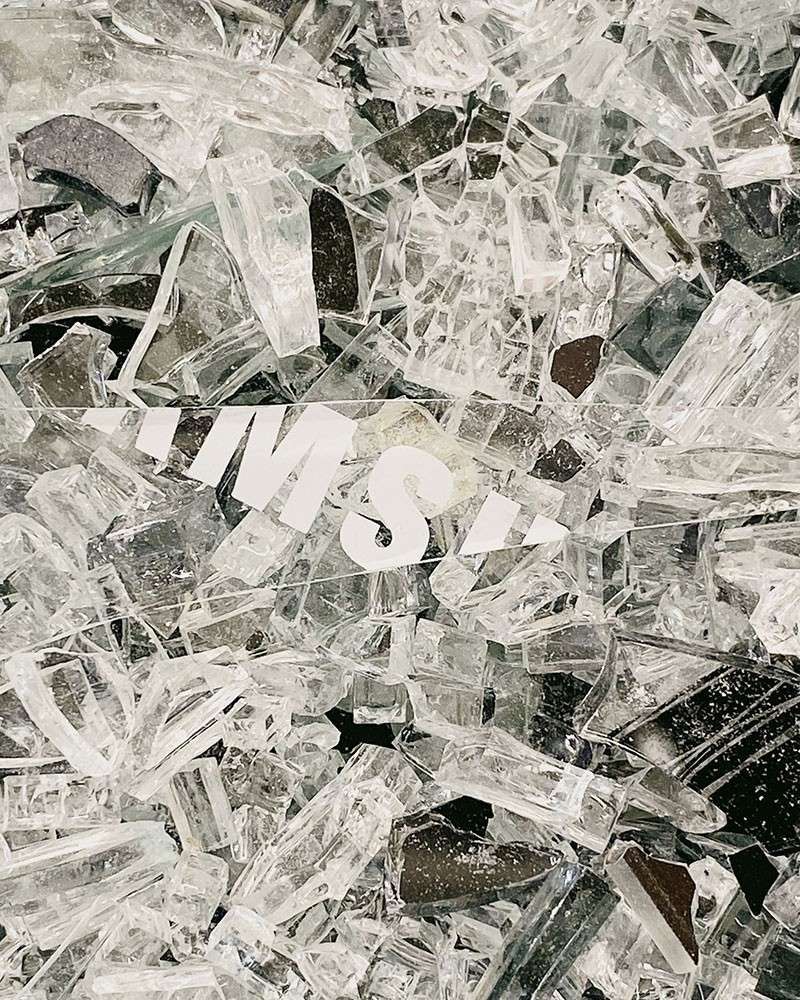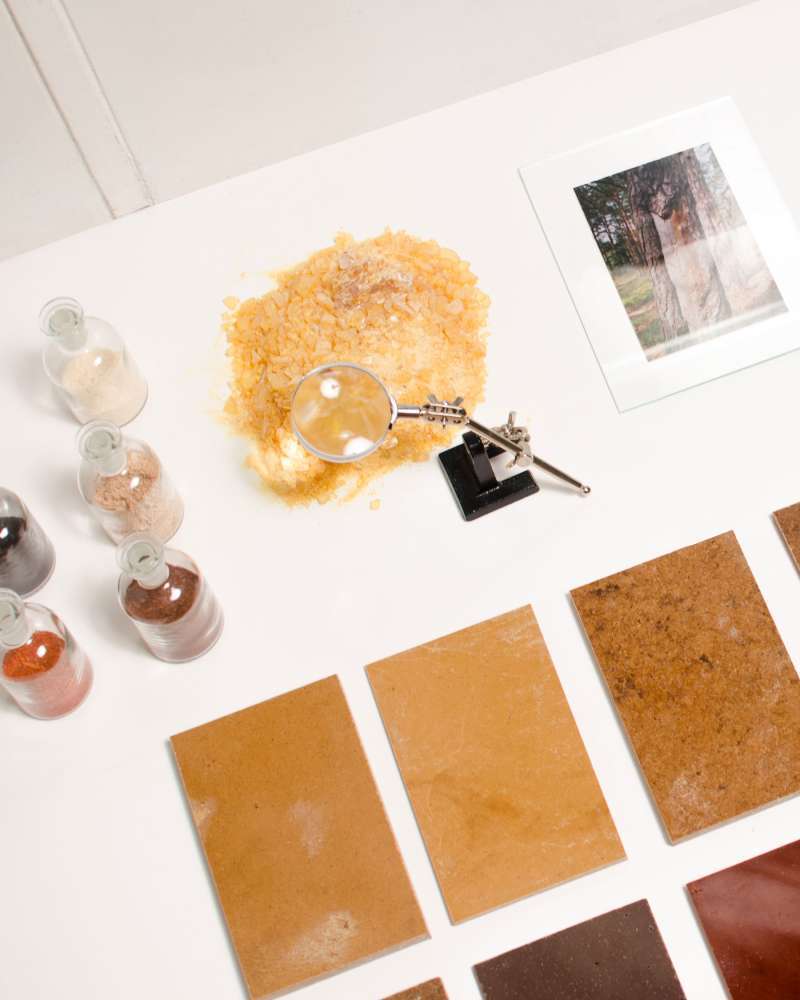Project+52
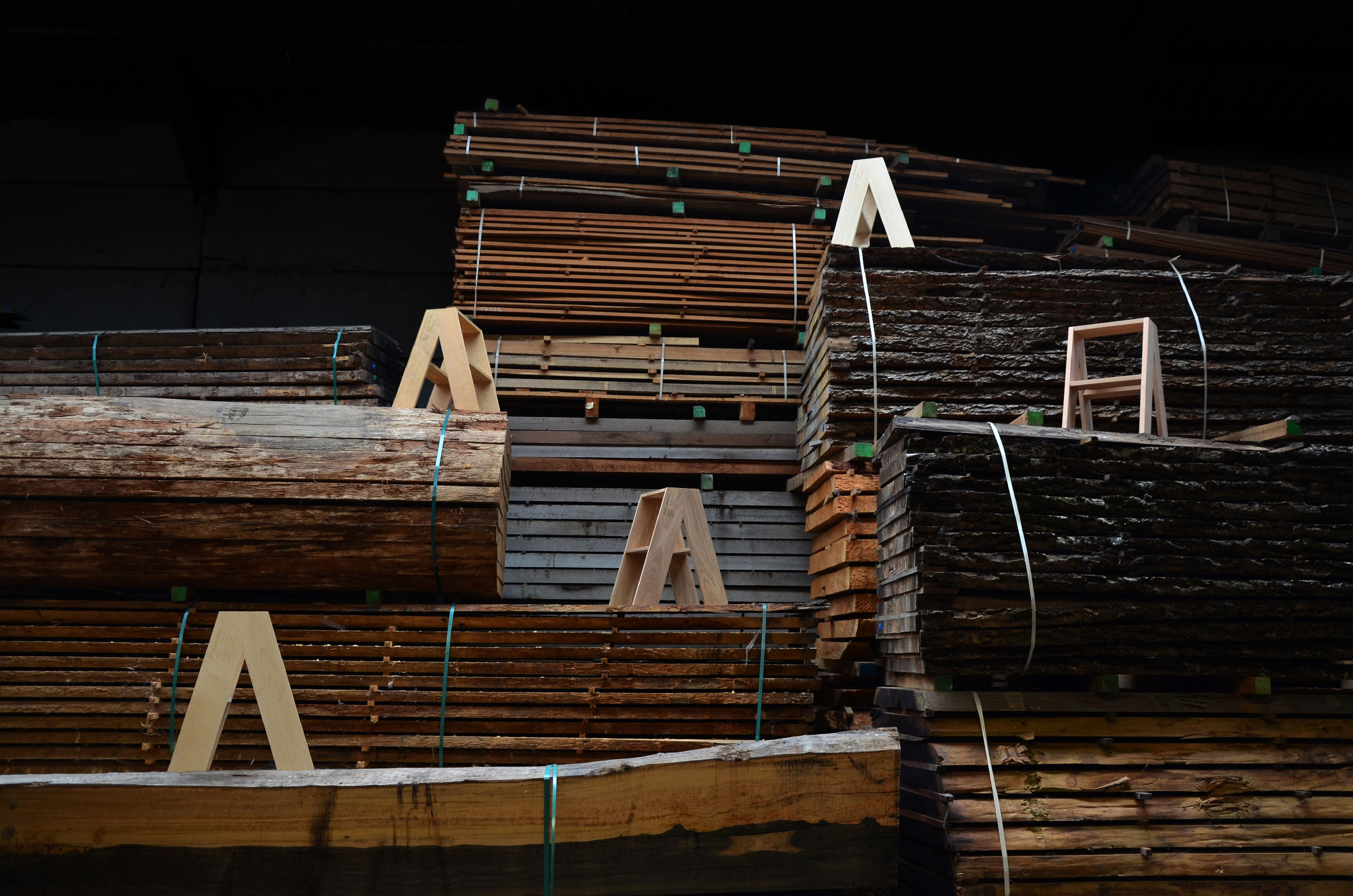
+52 is a wooden step stool, a functional item offering additional reach or serving as an impromptu seat. +52 is not designed to exist in one type of wood alone. Instead the object is conceived as a scenario that can accommodate a multitude of local or global wood essences and their inherent properties. The project proposes to challenge and reconsider the use of overexploited wood types and make more sustainable choices — aesthetically, economically and ecologically.
Context
Context
| Client | BOS+ | Hout Info Bois | Flanders DC |
| Year | 2020-2021 |
| Concept & Design | Archibald Godts, Theresa Bastek |
| Collaborators | Vercruysse Timber |
| Contributors | IDE Woods | Forest Operator and Sawmill Cohout | Thys Sawmill | Marc Goossens |
| Photography | Studio Plastique (Theresa Bastek & Gianmarco Ciucciovè) |
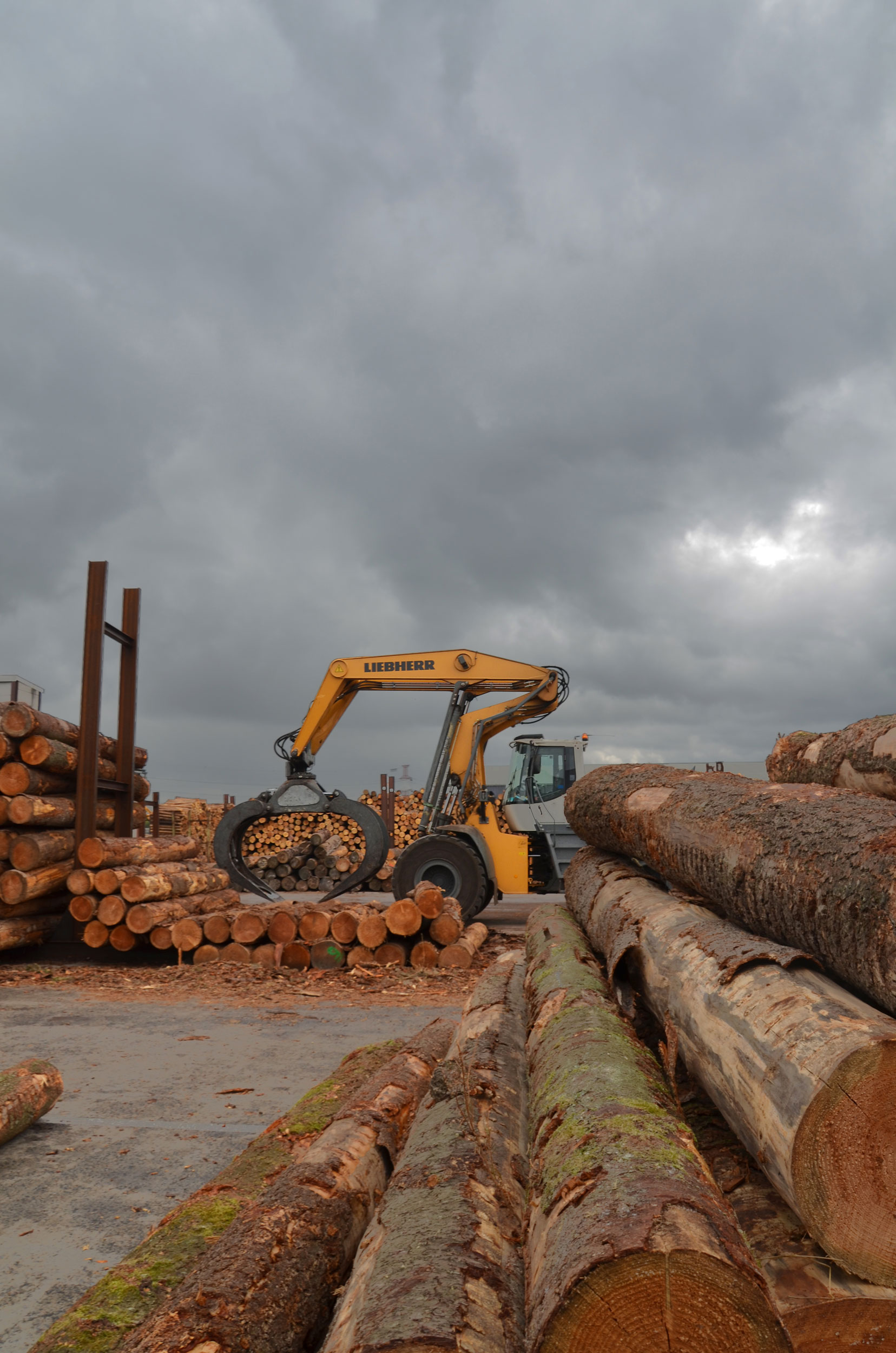
The forest is an ecosystem of balanced diversity. This diversity generates a range of products that can be harvested from the forest sustainably, if we embrace this potential. The opposite scenario, planting trees in the form of plantations, disturbs the balance, leaving those environments prone to pests, diseases but also vulnerable to naturally occurring influences from the climate.
Current timber trade and timber industry process only a selective range of species for their purposes. This selection is highly influenced by the demand - fashionable, practical or exclusive - leaving behind vast quantities of excellent wood to be turned into paper in the best case.
The product industry as well as architecture play an important role in the appreciation and application of wood. Designers and architects are trained with knowledge on a small selection of timber species only, notwithstanding the convenience of currently lesser used wood types. Additionally it is industrially more convenient working with a consistent flow of material and stable technical properties. Changing processes, tooling or machine settings often can be costly. As a result consumers expect a standardised industrial product and forget about the available diversity and varying qualities of a natural product. It is an appreciation that is force-fed by our industrialised and standardised economies.
Stools
Stools
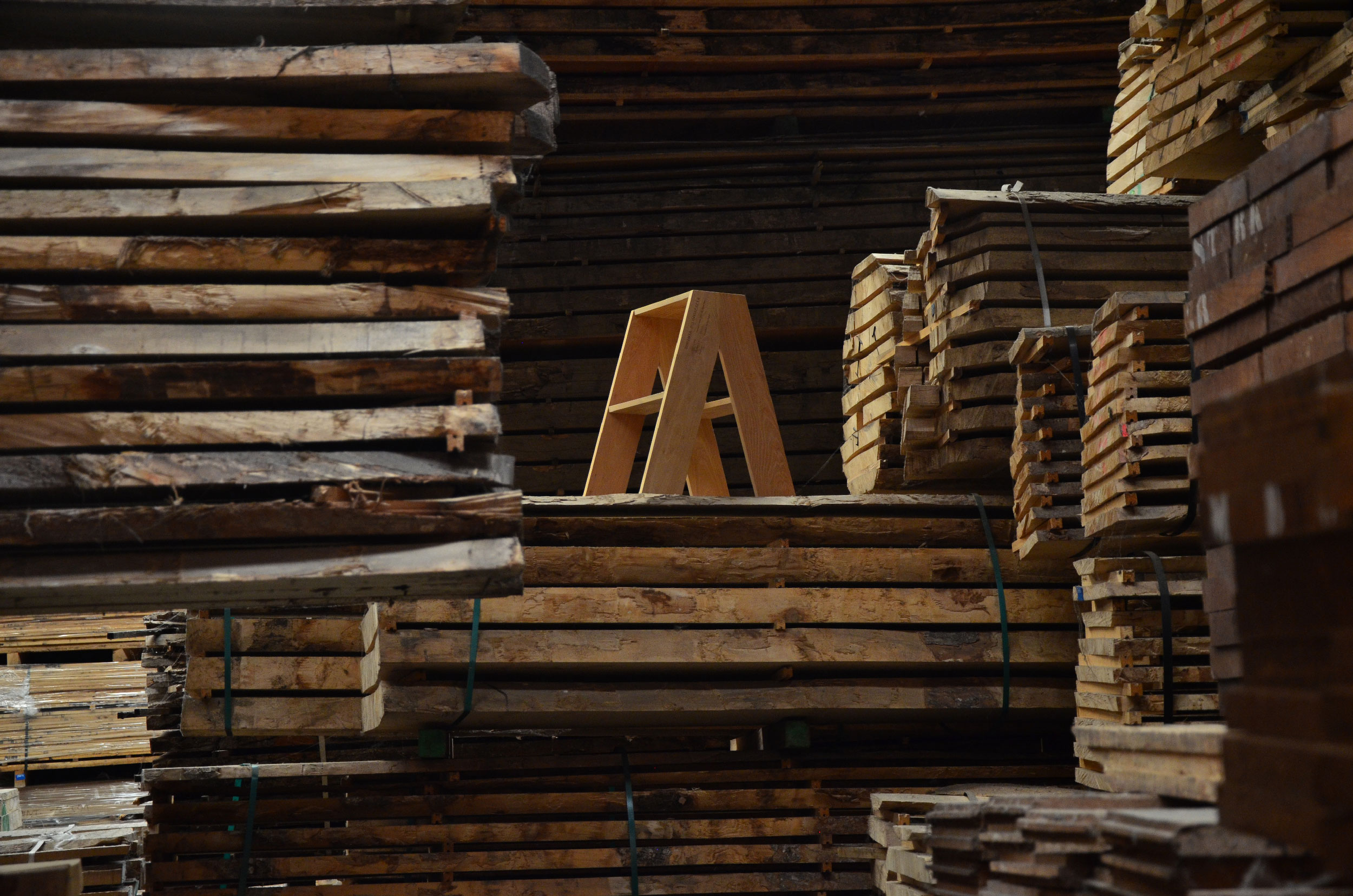
Current timber trade and timber industry process only a selective range of species for their purposes. This selection is highly influenced by the demand which depends largely on fashion and education.
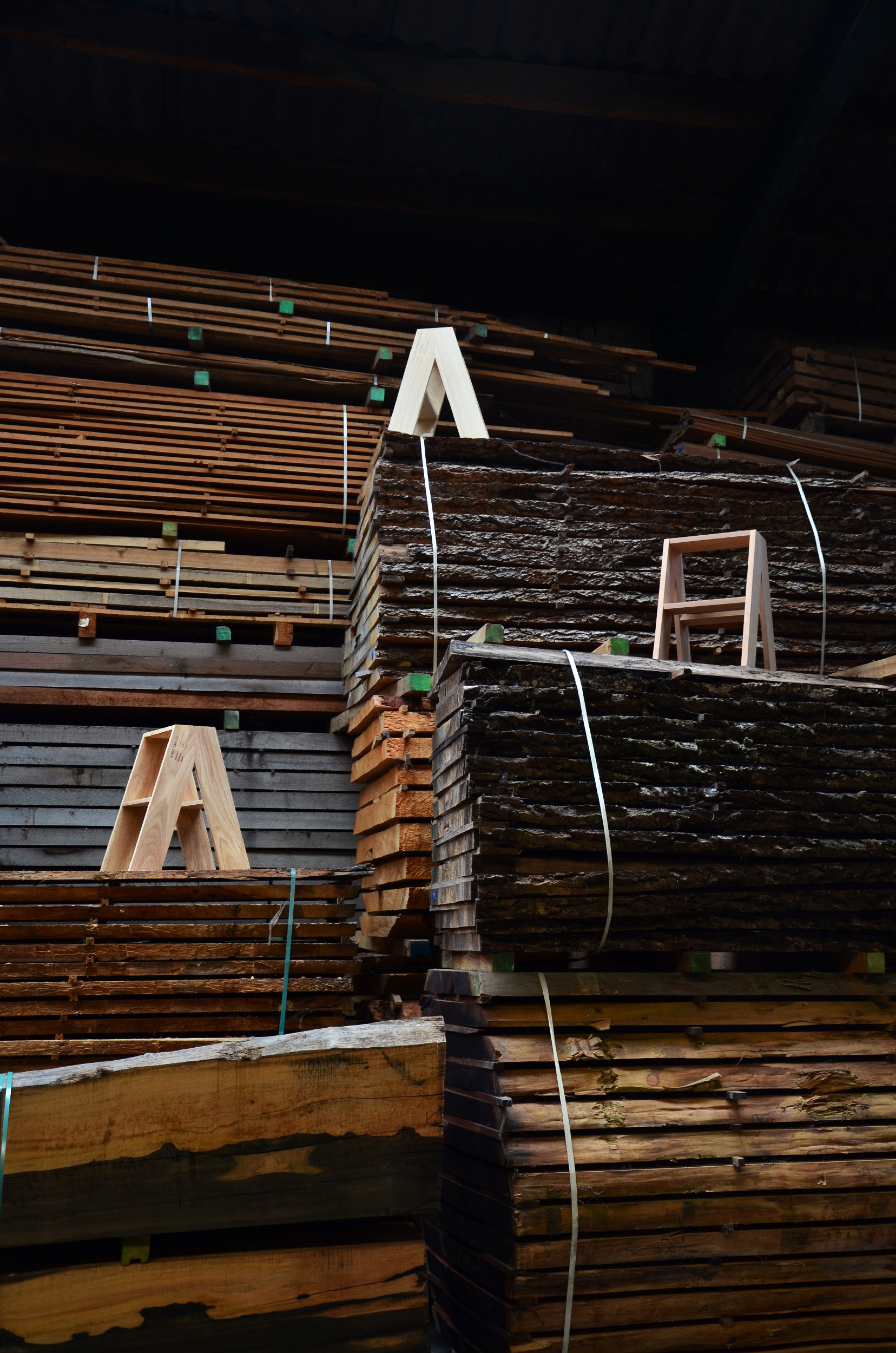
With +52 we would like to contribute to an alternative perspective on wood scenarios. Through our collaboration with wood trader Vercruysse, we aim to highlight these problematics on the one hand and on the other propose diversified scenarios.
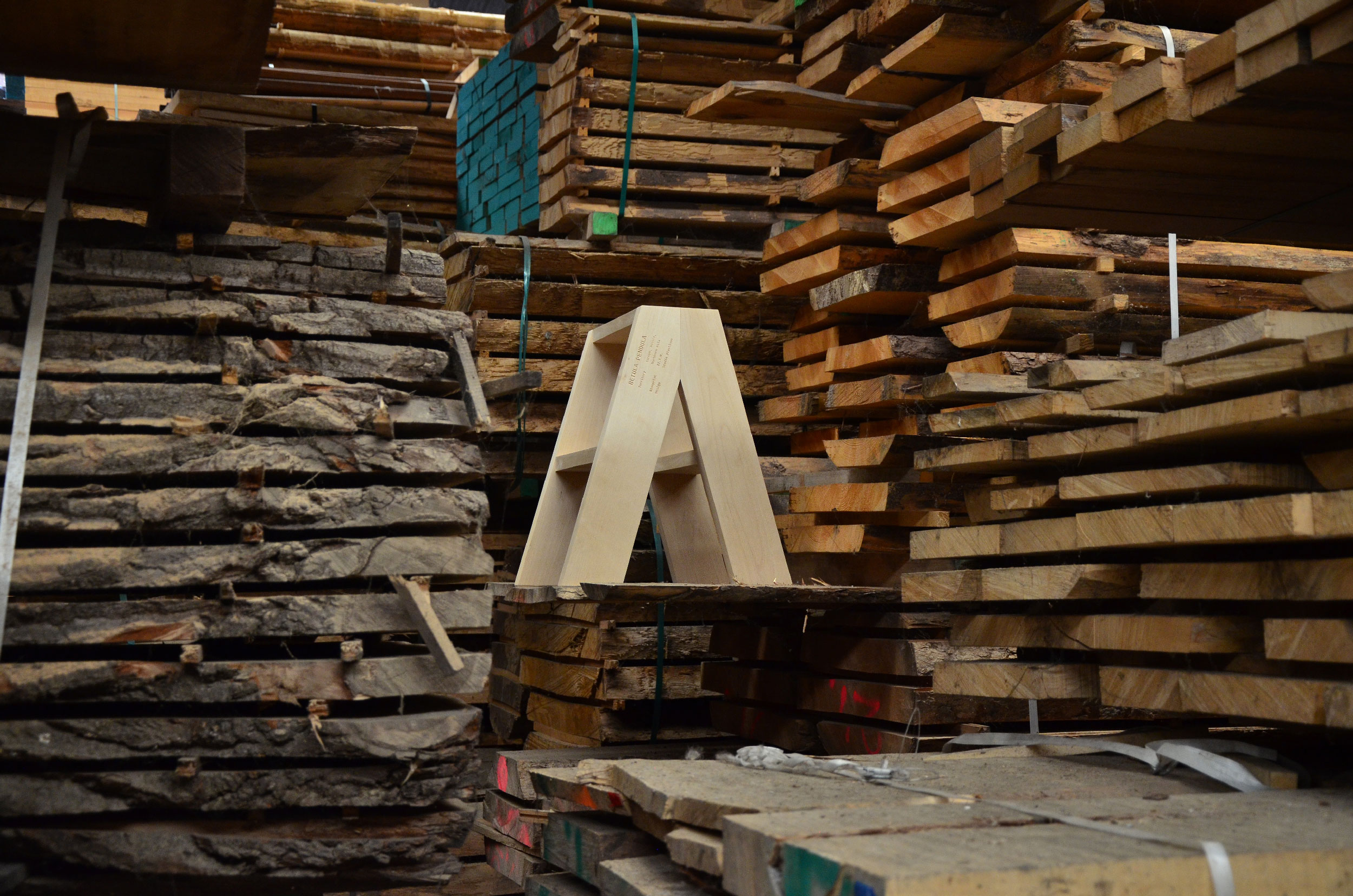
By researching and working with types of wood that are rarely used commercially today, we hope to highlight their specific properties, aesthetically as well as technically. We are ultimately addressing the potential of undervalued wood species and reducing pressure on overexploited species.
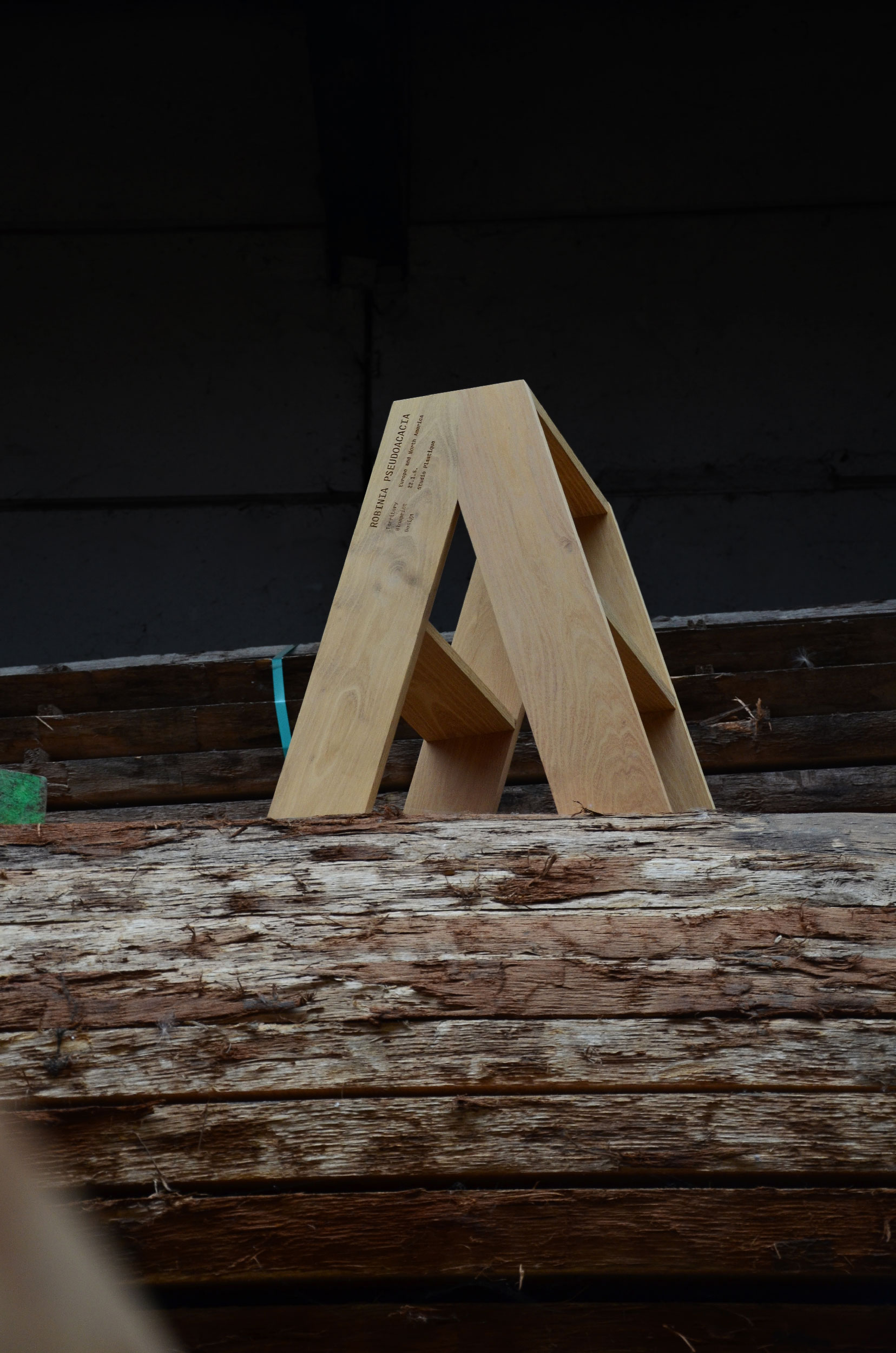
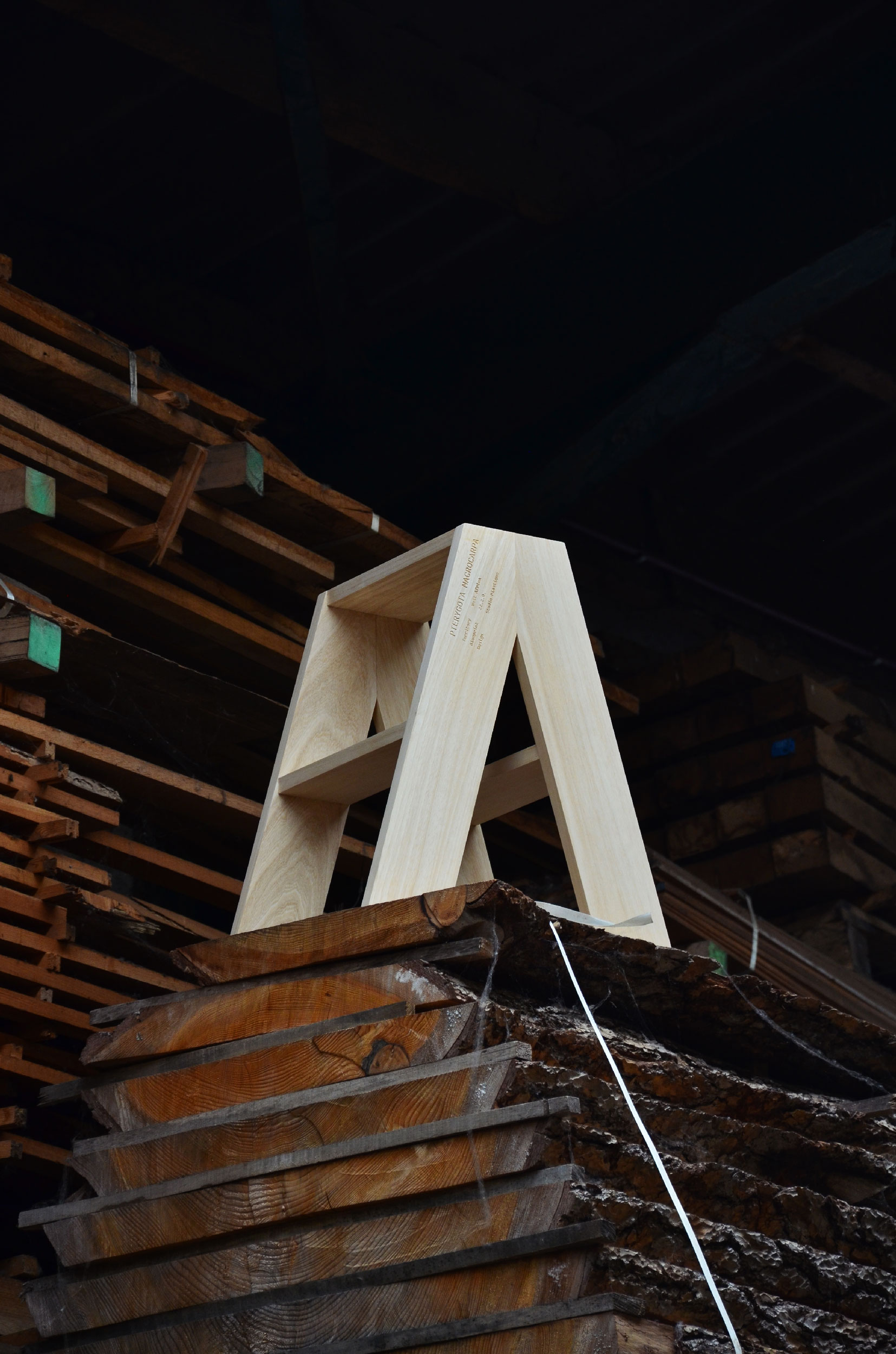
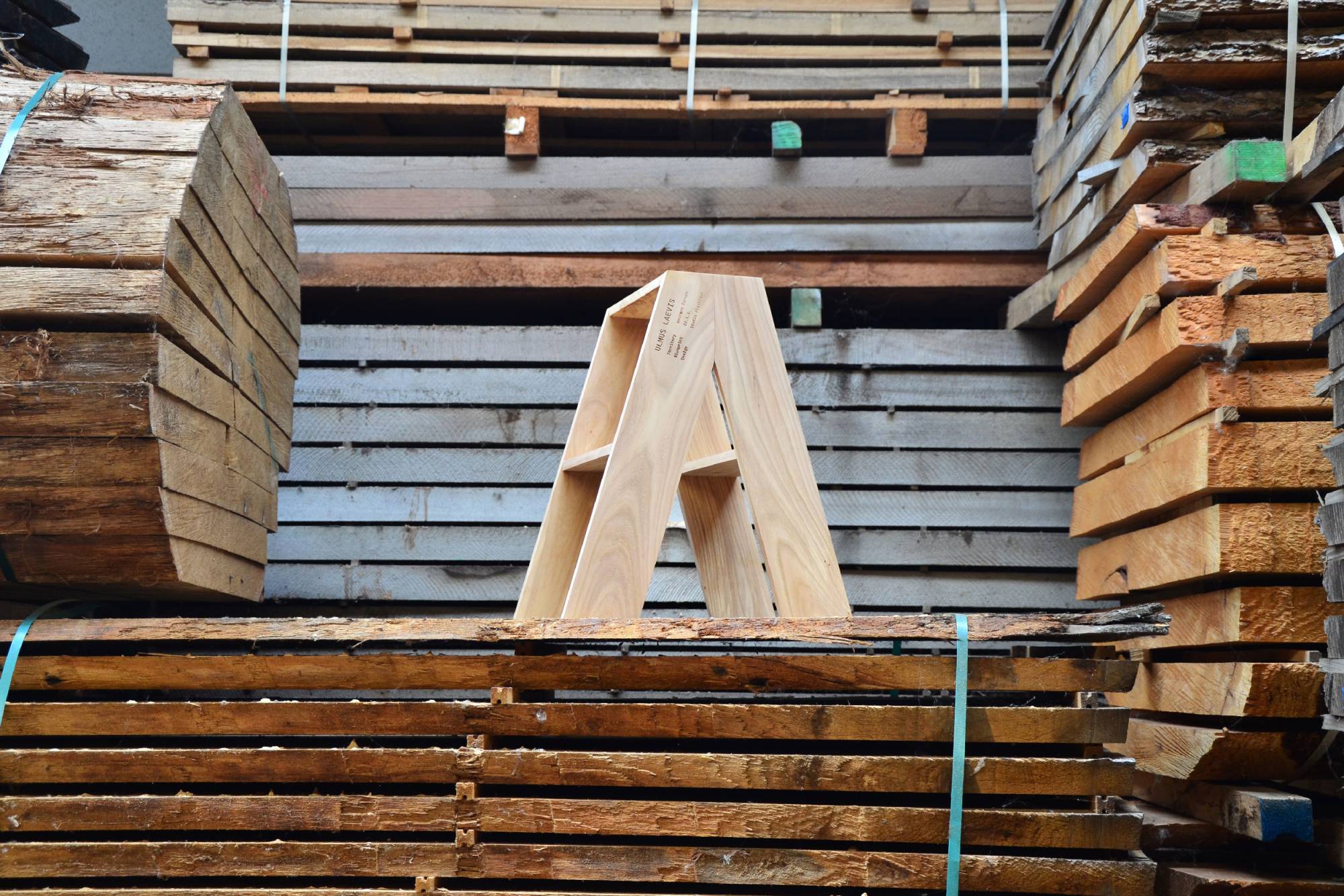
The object is conceived as a scenario that can accommodate a multitude of local or global wood essences and their inherent properties. Modular thickness safeguards the strength and warping properties of the wood whilst playing with weight and aesthetic variances in the colours and textures of the wood species.
